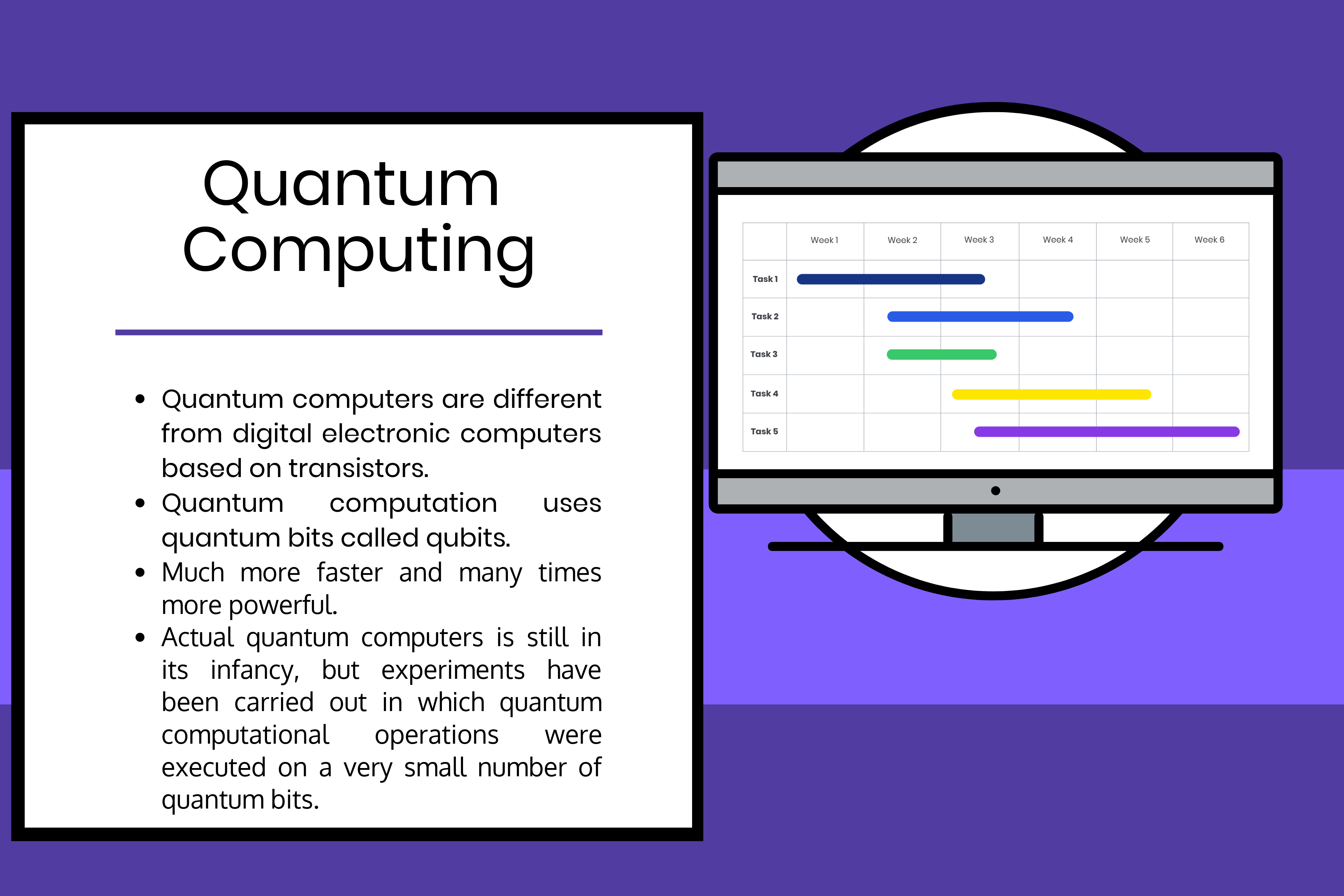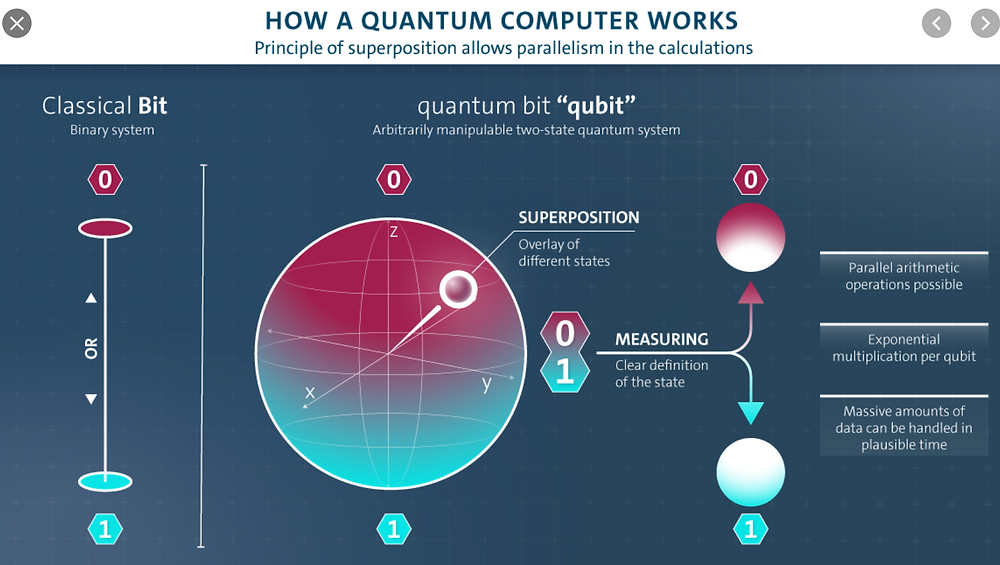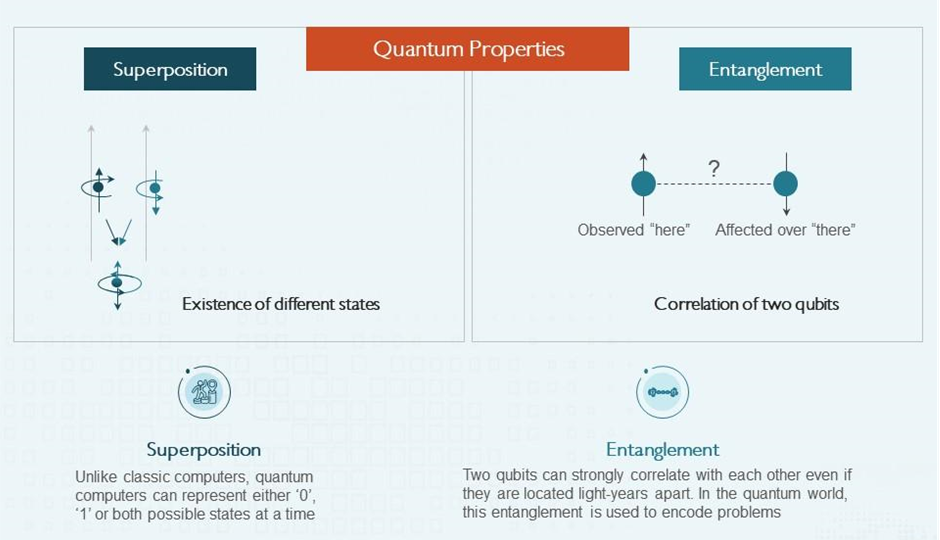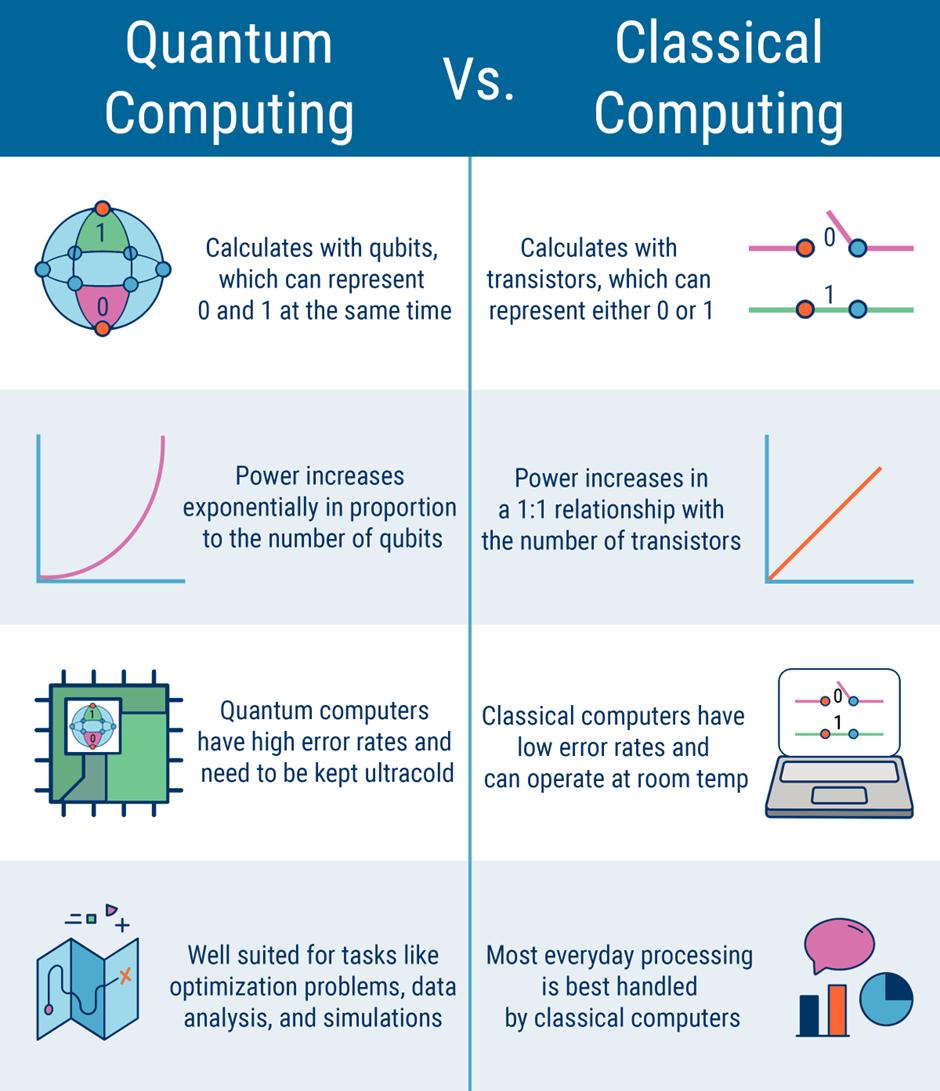What is quantum computing?
The study of technologies based on the concepts of quantum theory is the focus of the field of computer science known as quantum computing. Problems that are too complicated for classical computers can be solved using quantum computing, which makes use of the peculiar behaviours of quantum physics.
The advent of quantum computing represents a significant advance in computing power, with the potential for enormous performance increases in some application cases. For instance, quantum computing has the potential to be used in fields including pharmaceuticals, healthcare, manufacturing, cybersecurity, and finance and is projected to excel at tasks like integer factorization and simulations.

How quantum computing works?
The nature and behaviour of energy and matter at the quantum, or atomic and subatomic, levels are explained by quantum theory. Quantum computing makes use of the properties of quantum matter: Quantum computing uses 1s, 0s, and both a 1 and a 0 concurrently instead of the binary bits used in classical computing, which are 1s and 0s. Because bits can be in several states at once, the quantum computer acquires a significant amount of computational capability.
A qubit storage area, a signal transmission technique, and a conventional computer that executes programmes and transmits commands make up a quantum computer.
In terms of computing, a qubit, or quantum bit, is comparable to a bit. A qubit is the fundamental informational building block of a quantum computer, just as a bit is in a classical one. Particles like electrons or photons, which are given a charge or polarisation to act as a 0, 1, or both a 0 and a 1, are used in quantum computers. The concepts of superposition and entanglement are the two components of quantum physics that are most important.

Features of quantum computing
• Superposition - Qubits that are simultaneously in all configurations are said to be in superposition. A qubit can be compared to an electron in a magnetic field. The spin of the electron can be either spin-up, or aligned with the field, or spin-down, which is the opposite of the field. An energy pulse, such as one from a laser, can be used to shift the electron's spin from one state to another. The particle reaches a superposition of states when only half a unit of laser energy is applied and it is completely shielded from any extraneous stimuli. The particle acts as though it were simultaneously in both states.
The number of operations a quantum computer might perform is 2n, where n is the number of qubits used, because qubits can exist in a superposition of 0 and 1. A 500 qubit quantum computer has the capacity to perform 2500 calculations in a single step.
• Entanglement - Qubit pairs that are coupled enough that modify one directly alters the other are called entanglement particles. Knowing the up- or down-spin state of one entangled particle reveals the opposite-direction spin of the other. Additionally, the observed particle does not have a single spin orientation prior to measurement due to the superposition. The connected particle receives the spin state of the particle being measured at the time of measurement and adopts the opposite spin direction at the same time.
Qubits that are far apart from one another can instantly interact thanks to quantum entanglement. No matter how far apart the associated particles are, as long as they are separated, they stay entangled.
Entanglement and quantum superposition together greatly increase computer capability. The additional capacity grows exponentially as qubits are added.

Benefits of quantum computing
• Speed: When compared to traditional computers, quantum computers are extraordinarily fast. Quantum computing, for instance, has the potential to accelerate financial portfolio management models like the Monte Carlo model for calculating the likelihood of outcomes and the risks involved.
• The capacity to solve complicated problems: Multiple sophisticated calculations can be carried out at once on quantum computers. This is especially helpful for factorizations because it could advance the development of decryption technology.
• Simulations: Complex simulations can be done on quantum computers. They are quick enough to mimic more complex systems than traditional computers. For instance, molecular simulations, which are crucial in the creation of prescription drugs, might benefit from this.
• Optimization: Quantum computing has the potential to revolutionise artificial intelligence and machine learning due to its ability to process enormous volumes of complex data.

Conclusion
Some of our current systems might be destroyed by quantum computers. From email to online retail transactions, the RSA cryptosystem offers the security framework for a variety of privacy and communication protocols. In order to maintain current standards, it is assumed that no one has the processing power to evaluate every method for decrypting data once it has been encrypted. However, a mature quantum computer could test every method in a couple of hours.
